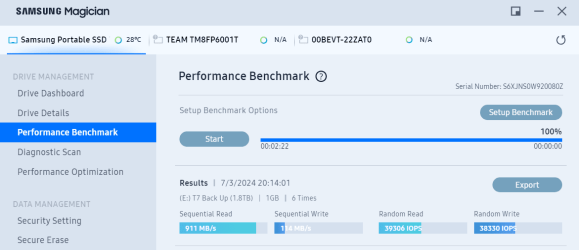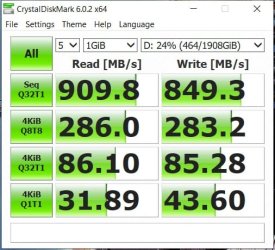- Local time
- 12:47 AM
- Posts
- 6
- OS
- Windows11
- Windows Build/Version
- Win 11 Pro Version 23H2 (OS build 22631.3737)
Last edited:
My Computer
System One
-
- OS
- Windows11
- Computer type
- PC/Desktop
- Manufacturer/Model
- HP ProDesk 400 G6 Desktop Mini PC
- CPU
- Intel(R) Core(TM) i5-10500T CPU @ 2.30GHz
- Memory
- 16.00 GB









